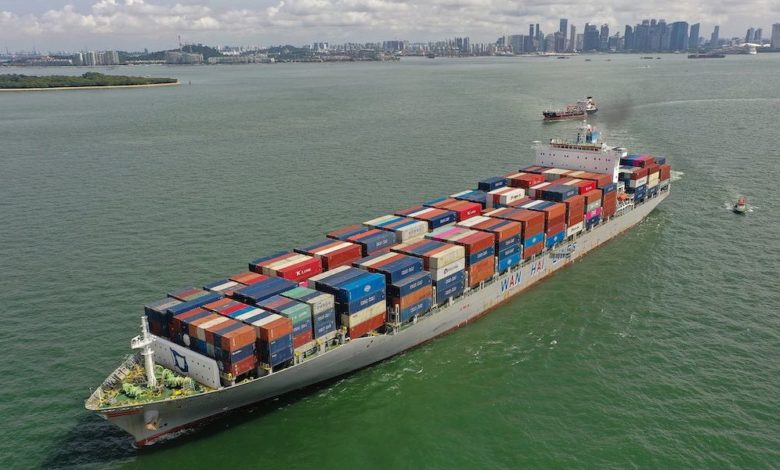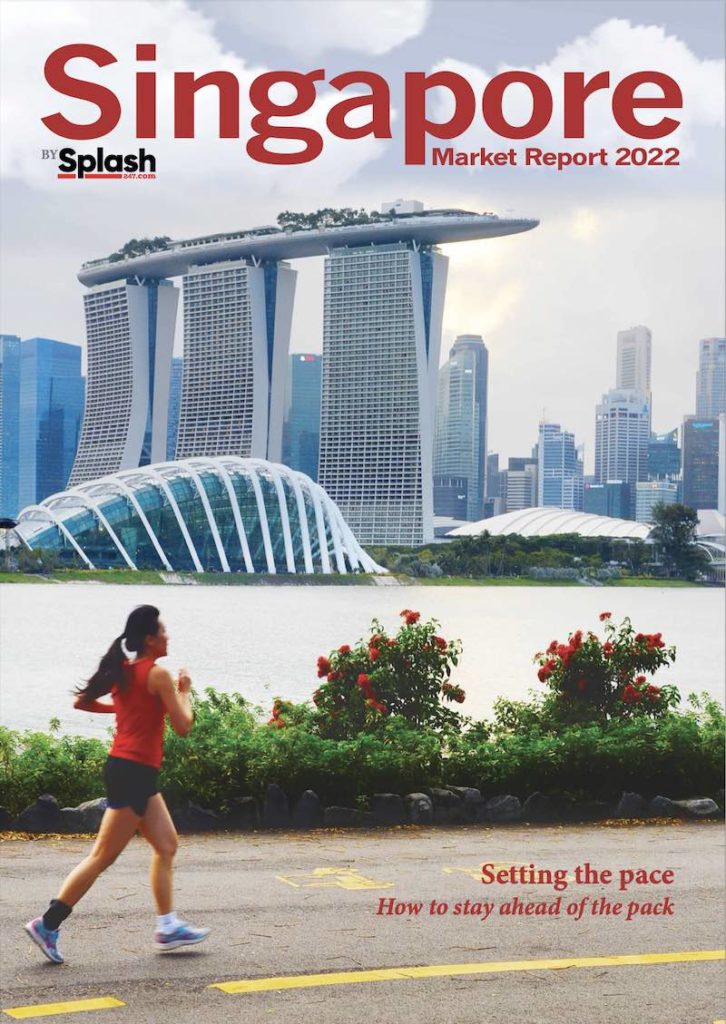Singapore: ‘Partnership is key in the decarbonisation journey’

How the Lion Republic is working with the industry to foster shipping’s carbon transition.
Shipping is undergoing its greatest transition in a century, and Singapore is determined to be a central thought leader for the greening of the industry.
While the likes of Scandinavia and Japan positioned themselves early on as shipping decarbonisation pioneers, Singapore has latterly come to join the ranks, with government and private industry joining forces to make the Lion Republic, the world’s largest bunkering hub, a petri-dish for some of the most exciting green shipping experiments in the world.
The global shipping community must work together
“With climate change on the global agenda, decarbonisation has become a top priority for the shipping industry, and maritime Singapore is committed towards decarbonising the maritime industry,” says Quah Ley Hoon, the departing chief executive of the Maritime and Port Authority (MPA) of Singapore.
Singapore has mapped out its maritime decarbonisation strategy and priorities, through the Maritime Singapore Decarbonisation Blueprint 2050 released in March this year. Developed by the MPA in consultation with industry partners, it provides a roadmap to help the sector achieve International Maritime Organization’s 2050 target of reducing total annual greenhouse gas emissions by at least 50% compared to 2008 levels.
The MPA will commit additional funds of least S$300m ($214m) to support the decarbonisation efforts in seven key areas: port terminals; domestic harbour craft; future marine fuels, bunkering standards and infrastructure; the Singapore Registry of Ships (SRS); international efforts including IMO; research and development andtalent; and carbon awareness, carbon accounting and green financing.
The greening of the Singapore Registry of Ships (SRS), which is recognised as one of the top five ship registries globally with more than 4,000 ships aggregating over 93m gross tonnage, is a key initiative under the Maritime Singapore Decarbonisation Blueprint. To help shipowners enhance their commercial attractiveness of decarbonising their fleet, SRS became the first ship registry in the world to introduce green notations for vessels in November 2021.
Vessels exceeding the requirements of IMO’s Marpol Annex VI Phase 3 Energy Efficiency Design Index (EEDI) targets by 10% or more will secure a 50% reduction on initial registration fees (IRF) and a 20% rebate on the annual tonnage taxes (ATT). Already registered ships that comply will also get a 20% rebate on the ATT.
Meanwhile, ships that use liquified natural gas (LNG) or fuels with a conversion factor lower than LNG as their primary fuel, such as bio-LNG, bio-methanol, and bio-ethanol, will get a 75% and 50% discount on the IRF and ATT, respectively.
“Partnership is key in the decarbonisation journey. The global shipping community must work together,” Quah insists.
A demonstration of this commitment to work together with industry is the founding of the Global Centre for Maritime Decarbonisation (GCMD) in August last year together with six founding partners – BW Group, BHP, Eastern Pacific Shipping, Foundation Det Norske Veritas, Ocean Network Express and Sembcorp Marine – to identify decarbonisation pathways, formulate standards, deploy solutions, finance projects, and identify business opportunities for the industry by fostering collaboration across the sectors. Professor Lynn Loo moved from Princeton University in the US to head up the new green shipping centre. Among many projects recently launched by the centre is a drop-in biofuels pilot project to establish an assurance framework for ensuring the supply chain integrity of current and future green marine fuels. The year-long project started last month with a consortium made up of 18 industry partners.
The MPA joined the Castor Joint Development Project Initiative in February 2021 to provide insights on safety issues and ammonia bunkering procedures from MPA’s experience as a leading bunkering hub.
Members of the initiative include MISC, Lloyd’s Register, MAN Energy Solutions, Samsung Heavy Industries, Yara International and Jurong Port, with the group aiming to develop and deploy a first ammonia-powered tanker by 2025. Ammonia bunker barges are also being developed by Singaporean companies.
Singapore and Rotterdam have joined forces to develop the world’s longest green shipping corridor
The MPA also signed three memoranda of understanding (MoU) earlier this year with two green shipping consortiums to establish an integrated ammonia fuel supply chain and establish a platform for the parties to exchange views and harmonise ammonia bunkering safety guidelines.
During Singapore Maritime Week in April this year, Minister for Transport and Minister-in-Charge of Trade Relations, Singapore, S Iswaran, announced that Singapore will join the Clydebank Declaration for Green Shipping Corridors. The Clydebank Declaration aims to establish green shipping corridors between ports by deploying zero-emission vessel technologies on voyages, or alternative fuel and charging infrastructure in ports. As a follow up to this, in August Singapore and Rotterdam joined forces to develop the world’s longest green shipping corridor for low and zero carbon shipping.
“When it comes to decarbonisation and sustainability, there has been significant development in Singapore within the last couple of years,” says Dr Shahrin Osman, regional head of maritime advisory for class society DNV. DNV set up its regional centre of excellence in maritime decarbonisation and autonomy in Singapore, as a recognition of the importance of Singapore’s role within the global maritime ecosystem.
This is an extract from the Splash Singapore Market Report 2022, which is being distributed across multiple shipping events in the Lion City this week. Splash readers can access the full magazine for free online by clicking here.

